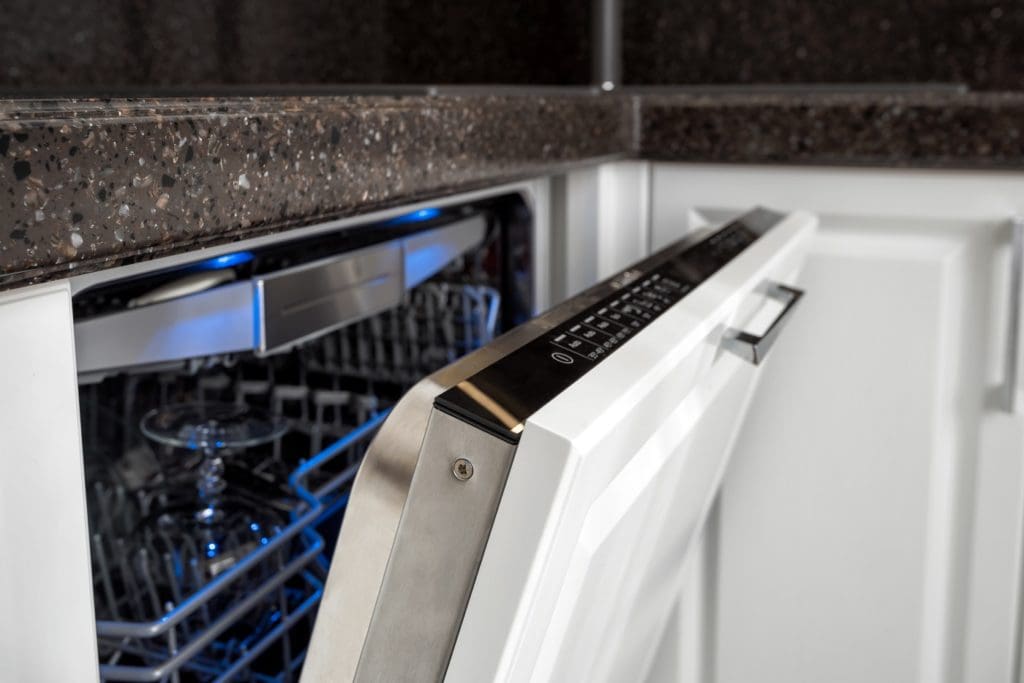
 The home inspection contingency is one of the most common contingencies in a real estate contract.
Your buyer should know going in, that their home inspector will find issues with the “house of their dreams.”
That doesn’t mean that the house is falling down, or that this is a “sign” that they shouldn’t buy the house. It’s simply a fact.
The intent of the home inspection is not for the buyer to see if they just bought the perfect house. There is no such thing as the perfect house.
Even new construction houses have issues from the home inspection that need to be addressed.
I like to call a house, “the child that never grows up.” Houses will always have an issue here and there. It’s just one of the joys of home ownership.
Help your buyer understand that the intent of the home inspection is for them to find out what is going on with the house, so they can prioritize future repairs.
The home inspection contingency is one of the most common contingencies in a real estate contract.
Your buyer should know going in, that their home inspector will find issues with the “house of their dreams.”
That doesn’t mean that the house is falling down, or that this is a “sign” that they shouldn’t buy the house. It’s simply a fact.
The intent of the home inspection is not for the buyer to see if they just bought the perfect house. There is no such thing as the perfect house.
Even new construction houses have issues from the home inspection that need to be addressed.
I like to call a house, “the child that never grows up.” Houses will always have an issue here and there. It’s just one of the joys of home ownership.
Help your buyer understand that the intent of the home inspection is for them to find out what is going on with the house, so they can prioritize future repairs.
Related: Why Have a Home Inspection?
Not a Code Inspection
Keep in mind that the home inspection is just one person’s opinion. You could easily get three home inspections, with three different inspectors, and each inspector would view the house differently. Some inspectors will conduct what can be called a “code” inspection. They will inspect the house as if it were built this year, telling the buyer that “this and that” aren’t up to code. As a result, the buyer gets alarmed and could possibly want to void the contract. But give your buyer some perspective. A house built in 1950 couldn’t possibly be up to the building standards of today. Building codes change constantly and it does a disservice to the client when an inspector insists on various items being brought up to code. The seller doesn’t have to make those types of repairs, unless the house has been recently renovated. Even then, it depends on when those renovation were done.Every House Has Issues
Your buyers’ anxiety level is probably at an all-time high. The last thing they need is for an inspector to make a mountain out of a mole hill. Every house has issues…some big, some small. It is important for the inspector to give the home buyer that perspective. You can help your buyer prepare for the inspector by telling them what items are typically found during a home inspection. Here are the top seven issues I encounter on virtually every single inspection.1. Service the HVAC
It takes thought and action to change the filter on an HVAC unit. All homeowners know that they need to change the filter, but actually changing it can be challenging. Not because it’s difficult, it’s because they forget. As a result, extra dust gets into the unit so it may not work as efficiently as it could. Having the HVAC serviced is a great way to getting started on the right foot. It’s an inexpensive fix. If the seller won’t do it, the buyers can always have it done before they move in. Tell your buyers to put a reminder in their phone to change the filters on a regular basis.2. Loose Toilet to the Floor
Although it’s probably not a big deal, buyers usually have an issue with a loose toilet. The majority of the time it’s due to the screws being too loose at the base. When a toilet is installed, the plumber has to be very careful not to tighten the base screws too much because the base of the toilet may crack. You find so many loose toilets because the plumber is being cautious. Another easy fix, but one that needs to be done with a light touch.3. Dishwasher Not Secured to Countertop
With virtually every new kitchen having granite or stone countertops, this issues comes up a lot. Because dishwashers aren’t that difficult to install, many homeowners decide to do it themselves. Put these two together and you come up with a lot of unsecured dishwashers. The primary issue is the stone countertop. Whatever you do, don’t drill into stone. The dishwasher needs to be secured using side brackets. If this comes up at your home inspection, know that it’s a fairly easy and routine fix.4. Anti-Tipping Device on Stove
This safety feature is required by all stove manufactures, but it shocking how many installers don’t install it. I joke that it’s not a big deal because no one is using their oven door as a chair. Then I checked out a few YouTube videos and found that people do some crazy stuff with their stove. It’s another easy fix, that prevent some serious accidents.5. Window Not Working
When you open a window, you expect for it to stay open. When it doesn’t, it’s not only inconvenient, but it could be a safety issue. Some windows are heavy, and when they come down, they can cause some serious harm. Whether the window has broken sashes, springs or latches, they need to be repaired. Unless of course, the buyer is planning to replace all of the windows.6. Poor Grading
Water is the biggest enemy of any house. It can seep into the smallest of cracks and crevices. When the dirt against the exterior of the house slopes into the house, the homeowner is inviting damage. While it may be a time consuming task to change the slope, it can help prevent future moisture issues on the interior of the house.7. Reverse Polarity
Most of us wouldn’t know if an outlet was wired properly. As long as it works, we’re happy. But outlets that have reverse polarity can damage your electronics. The home inspector will use a circuit tester to ensure the outlets are wired properly. It’s a rare inspection that uncovers that all of the outlets are bad. In most inspections, there will only be one or two outlets with reverse polarity.What the Home Inspection is NOT
First and foremost, the home inspection is not about the buyer getting every repair dollar they can out of the seller. Sometimes buyers feel they paid top dollar for the house and are looking to get a little something back…in the form of repairs. But asking for unreasonable repairs is not the answer. Just because something is old doesn’t mean it should be replaced. If it is working properly, that is all that is required. The buyer needs to plan on replacing it in the future. When trying to determine what repairs to request of the seller, the buyer and the buyer’s agent should refer to the seller disclosure statements. If the seller disclosed that something was working and the home inspection determines that it is not working, that is an issue the seller should remedy because the buyer made their offer based on what the seller disclosed.Manage Expectations
Of course the buyer can request anything they want, however requesting unreasonable items be repaired can easily get both sides upset. This can turn the transaction south in the blink of an eye. It’s important for you to manage the buyers’ expectations from the beginning of the transaction. Help your buyers determine what items are truly important and which items they can repair on their own. Remind them that the seller is not obligated to repair anything or everything they request. Lastly, prepare your buyers for a counteroffer to their repair list. Be prosperous!
Enjoy less stress by having smoother transactions by implementing these simple strategies today!
Sign up today for my Free Email Course, 5 Things Every New Real Estate Agent Needs to Know. Start building your real estate business on a solid foundation. Click here to get started.Get Real-Life Training and Awesome Results With Real-Life Real Estate Training
- Have you struggled turning contacts into clients?
- Are you working hard, but hardly making any money?
- Are you beginning to think you made a bad career choice?

Let’s Go to Work!

As an active Realtor licensed in three jurisdictions, I approach real estate training from a different perspective. With over 18 years in the real estate business, I teach agents what it’s really like to be a real estate agent.









